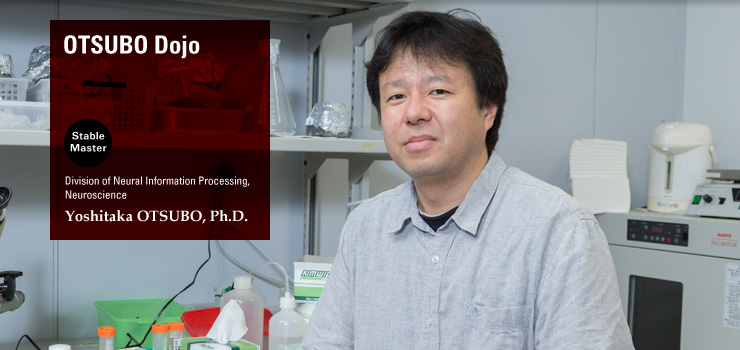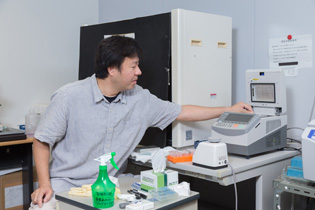 |
| @ |
 |
| The sensory organs of living things have receptor cells that detect physical and chemical stimuli. How do these cells recognize chemical substances and transform them into biological information? In our laboratory, focusing on interaction between chemicals and cells, we are conducting studies from gene expression to function analysis of cell populations. We have attempted to clarify the mechanisms, for example, in how taste information is processed stably in spite of the network of about 50 cells forming a taste bud always being replaced by new ones, and in how psychological conditions such as being relaxed or strained affect taste information. Based on the results obtained, we are working to develop a new signal processing system. |
 |
| The theme of this Degeiko is learning about cells. Examining iPS cells and examining tongue cells are the same in that both attempt to learn about cell characteristics. Programs are prepared to respond to different student interests and levels: determining the electrical signals in the nerve cells of a mousefs brain, examining expressed genes in cells through gene amplification and examining protein distribution through the immunostaining method. Gene amplification, famous for DNA testing, for example, is one of the most fundamental techniques used in a wide range of areas including food analysis, drug discovery and development and bio-related industries. Students interested in these areas are expected to acquire skills by using their own hands and to learn to habitually think using their hands. |
 |
|
|
@ |
|